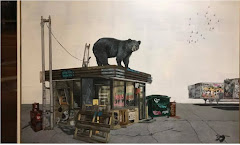
In the Summer of 1979, I was hired by a couple of producers in Hollywood to write a movie.
I was still mostly acting back then, but I had a couple of Canadian writing credits and for one reason or another they either liked my stuff or I came cheap.
The initial excitement of “making it” wore off in a couple of days as I met a handful of fellow screenwriters about my own age. They usually had about the same number of produced titles as I had –- with one difference –- I’d actually heard of the movies they’d written while nobody in LA had seen anything of mine.
About to get an insecurity complex, I decided to spend as much time acquiring the writing education I’d never had as I did writing. And I soon found a slim volume by a guy I’d never heard of named Syd Field.
To be honest, hardly anybody had heard of Syd in the Summer of 1979. His book, simply titled “Screenplay”, had just come out and LA was not yet a breeding ground for script gurus and screenwriting conferences.
I read Syd’s book and frankly was a little put off by it. Because it made the craft of writing look so damn simple and the process of creating a story as step by step as changing the washer in a faucet.
I felt duped. But I also had the nagging suspicion he knew what he was talking about. Because when I applied his simple “paradigm” to my own script –- it got a lot better.
A week or so later, I saw an ad for a weekend course Syd was teaching based on his book and signed up. I think it cost me about 40 bucks -- not to mention two whole days away from the beach and exploring old movie haunts.
The class was small, maybe a dozen people sitting around a chewed up set of tables on mismatched chairs, while Syd mapped everything he’d written about on a blackboard.
The other writers seemed as sceptical as me. We had sweated blood and banged our heads against IBM Selectrics for years trying to churn out something decent. And this teacher, who wasn’t even one of us, more accurately a guy who basically wrote coverage, was making it sound as easy as snapping together the pieces of a hot rod model kit.
But once again, when you applied his theories and tried out his suggested adjustments, not only did the scripts get better but they seemed to suddenly push all the right buttons for the studio guys.
I figured Syd Field might be onto something.
A year later, back in Toronto with Syd’s dog-eared book of wisdom now opening all kinds of doors for me, the newly forming Writers Guild of Canada asked me to organize some writing workshops.
The first call I placed was to Syd, who was genuinely excited to come to Canada in the middle of winter to espouse his approach to writing.
He was a wonderfully down to earth guy, not at all inflated by his growing success, even though his book was now flying off the shelves in a world where everybody and their dog walker seemed to be “working on a screenplay”.
And when his workshop was done, the Toronto conference room seemed evenly split between those who felt they’d had their eyes opened and those insisting he was selling some kind of snake oil.
Oddly, none of the snake oil crowd ever amounted to much.
But a lot of the ones who continued to follow Syd’s “rules” made out like bandits.
By the time he passed away yesterday, Syd Field had spawned countless writing careers that have resulted in both personal fortunes and Billions in earnings for studios large and small. His list of former students who have won Oscars, BAFTAs, WGA and WGC awards and even a few Genies and Screenies is formidable.
Yet to the end he remained an easy going guy who just wanted writers to have an easier time creating better movies.

There are those who moved on to other script gurus, including myself. And there are many who blame Syd’s Paradigm for making so many films simplistic and predictable.
But that dog eared copy of “Screenplay” from 35 years ago still sits next to my computer and still gets cracked open now and then.
For those writers inspired by Syd know that it wasn’t his rules that made movies bad. Because like all things creative they were merely a rough map, a line of torches in the darkness, simply showing a path you could then walk in any way you chose.
Syd, like Joseph Campbell, John Truby and Robert McKee, understood that human story telling has a biological component. Its structure is embedded in our DNA. Understanding that while the Human Genome has only 23 markers, each of the billions that are its product have our own unique and original story.
Syd brought millions of stories into the world, including my own. And for that, I, and anyone else who writes, owes him an endless debt of gratitude.




No comments:
Post a Comment